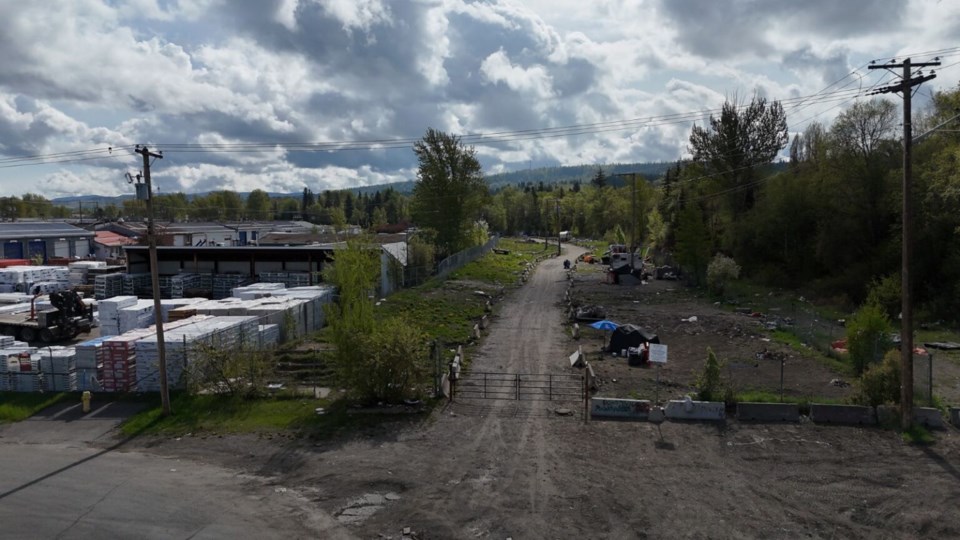After four years of conflict, crime, fires and fear at Moccasin Flats, this chapter of downtown Prince George’s story has ended.
The city has been seeking to close this encampment since 2021, with an additional request in 2022.
The ruling allows the city to enclose the encampment with fencing to prevent anyone from entering the area, with the exception of the remaining residents, and to begin remediating the land.
Originally, the Supreme Court allowed the Lower Patricia Boulevard encampment to exist, citing a lack of available housing options.
The facts presented to the court lay out clearly the work that has already been done. Since the original ruling, approximately 555 additional housing units have been provided by the province.
While this has reduced the number of residents in the encampment, 20 people remain permanent residents of Moccasin Flats.
These remaining residents will be offered transitional housing, at which point they will have seven days to leave the encampment.
The province, through BC Housing, offers shelters, including the new Third Avenue site, which has private rooms, two meals a day, laundry, mental health support and access to naloxone.
For many people experiencing homelessness, the new housing opportunities are not only adequate, but a significant improvement over life in a tent. For many, but not for all.
Whether due to trauma, addiction, a deep distrust of institutions or other challenges, there are individuals who are unable to transition to the current housing opportunities available.
Recognizing this, Elwood included a provision in his ruling that allows the 20 current residents of Moccasin Flats to pursue a constitutional exemption through the courts. The exemption would be based on demonstrating that due to serious mental illness or other relevant factors, they truly cannot live in even the low-barrier, supportive environments available.
The Moccasin Flats story illustrates the need for compassion with boundaries. The court recognized the work done by the province to house the homeless and endorsed enforcement — but added a safeguard for the truly vulnerable. This is how our system is supposed to work: with laws, but also with conscience.
Elwood’s ruling confirmed that permanent encampments on public land are not a sustainable or safe solution to homelessness.
Violating municipal bylaws is not a solution to homelessness. Cities cannot function if bylaws are ignored simply because enforcement is too hard or unpopular.
So, the city may close Moccasin Flats, the residents have been given somewhere to go — but what really happens next?
The danger now comes from “out of sight, out of mind.”
Although the people who previously lived at Moccasin Flats and at Millenium Park now have housing options, that has not changed the fact that many still suffer from addiction and/or mental health challenges.
In May, the city installed gates on the Flats with the intention of blocking vehicles — and another derelict trailer made its way in.
For many reasons, there will always be people who reject rules, structure and authority. But “not wanting to live with rules” is not a justification for living outside the law — not for the housed, and not for the unhoused.Closing this encampment doesn’t solve that problem.
City officials, the provincial government, police and social service agencies must be prepared. Enforcement without support will only lead to more conflict
Health Minister Josie Osborne needs to step up and provide long-term local treatment options for women and children. The province needs to step up and provide better long-term supports for those with mental health challenges.
Every effort must be made to ensure that those willing to accept help can access it quickly, and that those refusing it are still monitored and encouraged to engage.
The city must be empowered to protect parks, sidewalks, and neighbourhoods from turning into new encampments.
Elwood’s ruling offers a path forward. It’s rooted in legal clarity, human dignity, and community safety. But it’s only the start of the next chapter. What happens after Moccasin Flats will determine if the province has learned anything from all this.
Have your say with a letter to the editor: [email protected].



